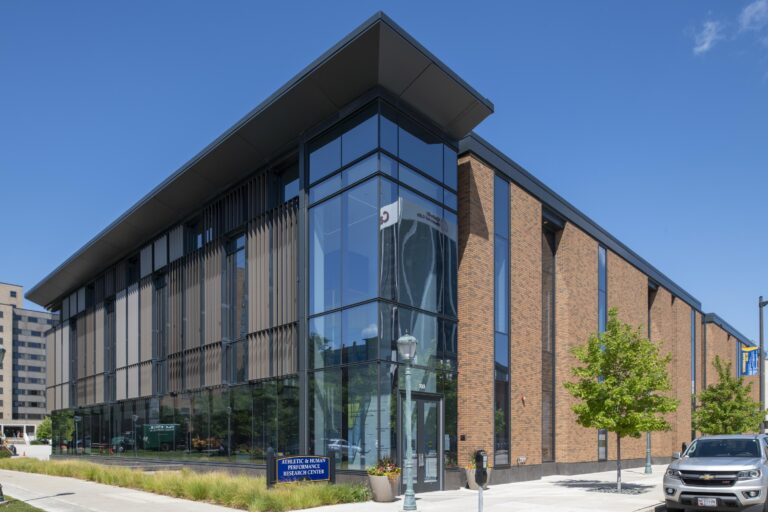Ranked among the top 35 Most Innovative Universities by U.S. News and World Report, Marquette University is committed to fostering a thriving academic research and scholarship community.
“We continue to set lofty goals designed to spark research and scholarship and to foster innovation across disciplines,” says Dr. Jeanne Hossenlopp, vice president for research and innovation. “Over time, we’ve seen a dramatic increase in research and development expenditures, and we’ve been able to identify and grow areas that are the strength of our talented research faculty. We’ve also worked to break down silos on campus and bring together cross-disciplinary partnerships, both internally and externally, to foster innovative solutions.”
Early in his presidency, President Michael R. Lovell set an ambitious goal for the university to double its research expenditures — something Marquette is on pace to do. Here are just some of the ways Marquette faculty are leading the way:
Fast facts:
- Under President Lovell’s leadership, there has been an 87% increase in federally funded research expenditures over the past eight years due to the outstanding work of our faculty.
- One in four undergraduates at Marquette participate in faculty research.
- Research and development expenditures eclipsed $40 million for the first time in fiscal year 2022, according to the most recent data released by the National Science Foundation.
Elite research grants, awards and funding:
Marquette faculty members in 2023 were awarded major grants from a variety of sources, including the National Institutes of Health, National Science Foundation and Department of Defense. The following are a sample of the research that is being undertaken at the university:
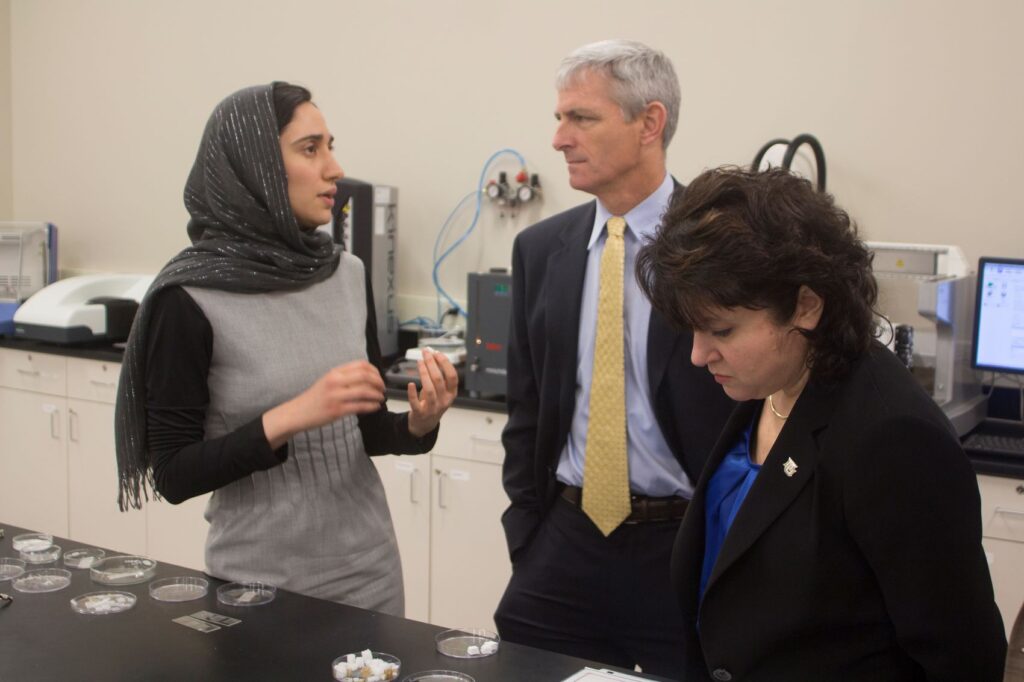
- Dr. Lobat Tayebi, director of research and professor of developmental sciences in the School of Dentistry, has received a National Institutes of Health R21 award for her project, “Synthetic osteo-odonto-keratoprosthesis (OOKP, Tooth-in-Eye surgery).” The two-year $425,000 award from the National Institutes of Health, National Eye Institute will feature the design and fabrication of a tissue-engineered synthetic keratoprosthesis for the OOKP surgery as a replacement of the osteo-odonto-lamina so that surgeons do not need to harvest teeth and surrounding jawbone of the patients, reducing patient morbidity.
- Marquette University and the Medical College of Wisconsin have received an R01 grant from the National Institutes of Health to study muscle fatigue in stroke survivors and solutions to increase their muscle performance. The grant has an expected value of $3.2 million over five years and was awarded by the Eunice Kennedy Shriver National Institute of Child Health and Human Development. Dr. Allison Hyngstrom, chair and professor of physical therapy in Marquette’s College of Health Sciences, and Dr. Matt Durand, associate professor of physical medicine and rehabilitation at MCW, are the principal investigators on the award.
- Dr. Qindan Huang, associate professor of civil, construction and environmental engineering in the Opus College of Engineering, received a grant worth $735,723 from the U.S. Department of Transportation to evaluate the cathodic protection method on pipeline metals, which shields steel from corrosion by attaching an active base metal which corrodes in its place by providing the electrons lost in the corrosive oxidization process.
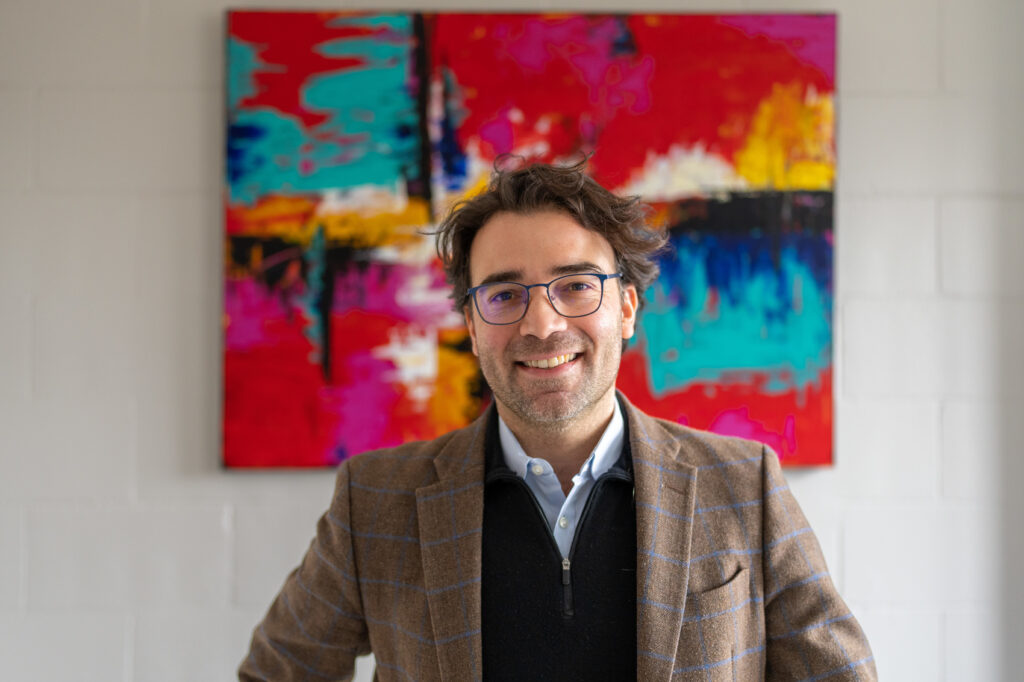
- Dr. Daniel Pinto, assistant professor of physical therapy in the College of Health Sciences, was awarded a grant from the National Institutes of Health worth $636,680 to study a physical activity intervention designed to increase and sustain physical activity in employees with chronic knee pain.
- Dr. Joseph Clark, assistant professor of chemistry in the Klingler College of Arts and Sciences, received a National Science Foundation CAREER grant, the National Science Foundation’s most prestigious awards in support of early-career faculty. The $650,000 grant will be used to develop new reactions for precision labeling of small molecules, which can allow scientists to track the fate of a drug molecule in the body.

- Marquette University received a second two-year, $3.8 million U.S. Department of Defense grant, led by Dr. Krassimira Hristova, professor of biological sciences, for an ongoing interdisciplinary program titled “In Defense of Water” to develop novel, sustainable technologies to protect human health and the environment, treat sewage, and provide clean drinking water and a framework for emergency response to water contamination.
- Dr. Tony Gamble, associate professor of biological sciences in the Klingler College of Arts and Sciences, has received almost $1.1 million in R01 grant funding from the National Institutes of Health’s National Human Genome Institute to expand genome editing tools and processes in lizards which could facilitate comparisons of gene function among other species, including humans.
- Marquette University, through its membership in the Northwestern Mutual Data Science Institute, has awarded seven $50,000 grants to Marquette faculty to fund a variety of data science research projects touching on health care — mental, general and dental; food scarcity; and artificial intelligence learning.
- Dr. Kimberly D’Anna Hernandez, associate professor of psychology, received $103,302 award ($700,000 total project) from the National Science Foundation in a collaborate project. D’Anna Hernandez and her collaborators are developing an interdisciplinary prevention program for perinatal depression.
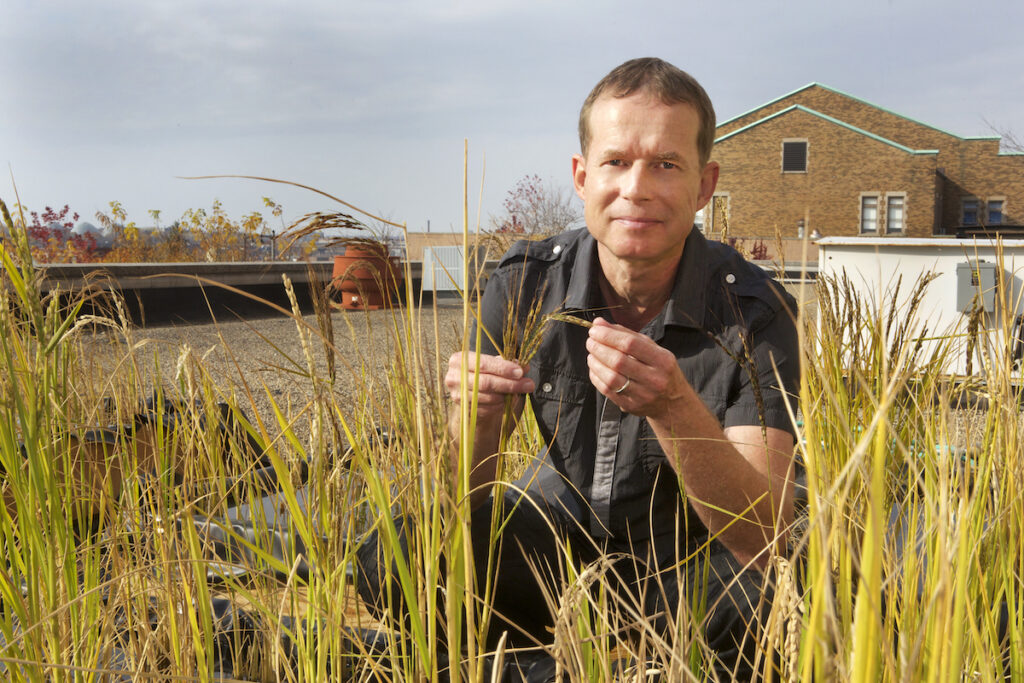
- Dr. Michael Schläppi, professor of biological sciences in the Klingler College of Arts and Sciences, has received a $650,000 grant from the U.S. Department of Agriculture to study cold tolerance in rice with a goal of expanding the rice planting season to earlier in the year to avoid seasonal effects that hinder quality and yield.
- Dr. Eugenia Afinoguenova, chair and professor of Spanish, is awarded $124,846 from the National Endowment for the Humanities. This collaborative research and writing project will lead to a book of essays on the visual culture of the Spanish Civil War (1936–39) and its visual legacy.
- Dr. Joseph LaManna, assistant professor of biological sciences in the Klingler College of Arts and Sciences, is heading a grant awarded by the National Science Foundation worth approximately $800,000 to explore how native microorganisms adapt under the stress of shifting global climates.

- Dr. Kristi Streeter, assistant professor of physical therapy, has received a $400,000 grant from the Craig H. Neilsen Foundation to expand her research on recovery of breathing function after damage to the spinal cord. The project will examine how sensory signals from respiratory muscles can be used to facilitate independent breathing following spinal cord injury.
- Dr. Matthew Hearing, assistant professor of biomedical sciences in the College of Health Sciences, was awarded a R01 grant worth $2,067,753 from the National Institutes of Health’s National Institute on Drug Abuse to study how the brain changes in the transition to opioid addiction and how factors like biological sex influence this development.
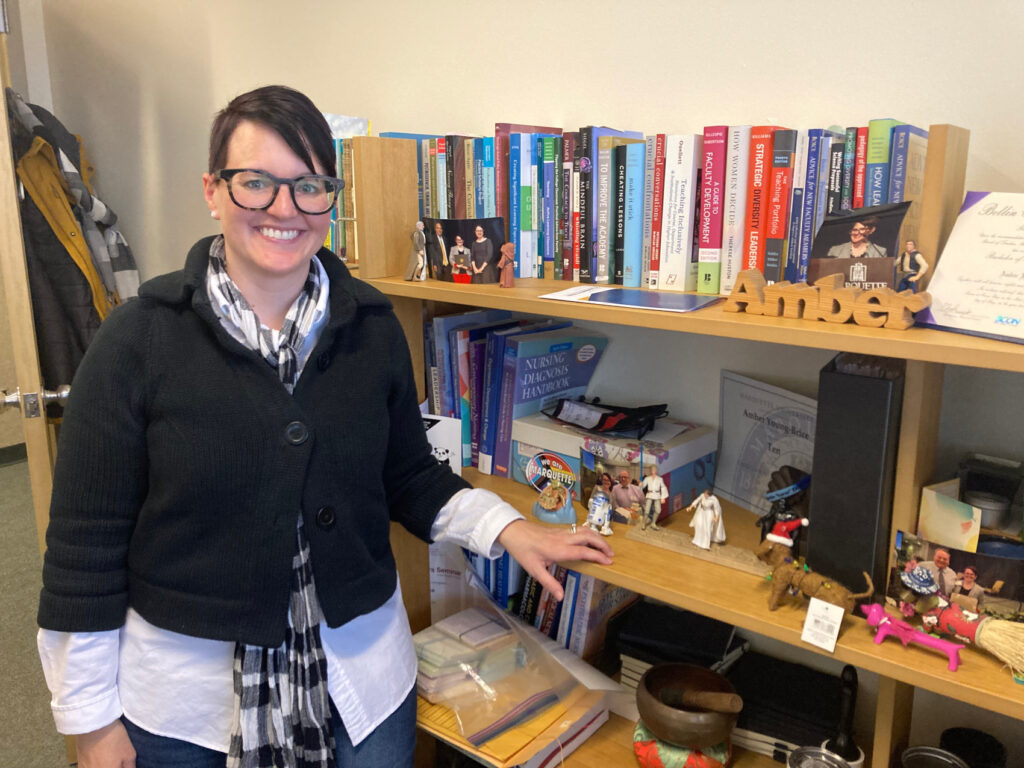
- Dr. Amber Young-Brice, assistant professor of nursing and assistant dean for academic affairs, along with assistant professors of mechanical engineering Drs. Somesh Roy and Allison Murray have received a $300,000 National Science Foundation award. The cross-disciplinary study, “Broadening Engineering Teaching with Theory-Based Educational Resources,” is expected to take three years.
- Dr. Dmitri Babikov, professor and Pfletschinger-Habermann Distinguished Chair of Chemistry in Marquette University’s Klingler College of Arts and Sciences, received an $800,000 grant from the National Science Foundation to study quantum architecture uses in chemical and molecular simulations.
- Dr. Nicholas Reiter, assistant professor of chemistry in the Klingler College of Arts and Sciences, received nearly $1.68 million in R01 funding from the National Institutes of Health’s National Institute of General Medical Sciences to study the misregulation of RNA binding proteins that lead to degenerative disorders and cancer.
Fulbright Student Award:

Seth Kreeger, a Ph.D. candidate in philosophy in the Klingler College of Arts and Sciences, received a Fulbright U.S. Student Program award for students and young alumni to travel abroad for research and teaching opportunities. He was chosen by the U.S. Department of State and the Fulbright Foreign Scholarship Board. Kreeger will be conducting his research into the Arabic philosophical background of the 13th-century Medieval Latin West at Katholieke Universiteit Leuven. His research will be completed in Leuven, Belgium.
Fulbright Scholar Award:

Dr. Enaya Othman, associate professor of languages, literatures and cultures in the Klingler College of Arts and Sciences, has received a Fulbright Scholar Award to research women’s use of traditional dress — thob — in the Middle East. Othman will conduct archival and onsite research in Palestinian Territories and Jordan to explore the forces working on women’s dress choices, including the dualities of regional cultures along with nationalization projects, cultural authenticity within a frame of modernity/hybridity, and local technologies employed in globalized economy.
Stay up to date on Marquette research activity, including new grants and publications, on Marquette Today.

